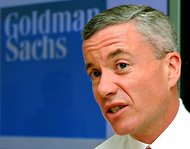GENEVA — Now that Luxembourg and Austria have given ground on bank secrecy rules, the spotlight has turned to Switzerland, a country famous for the anonymity it provides in equal measure to the rich, the famous and those who want to hide their money.
More than four years ago, the Swiss made painful concessions to American authorities. But as impatience with tax avoiders spreads to a region where governments are desperate for revenue, the Swiss are bracing for a new onslaught on their cherished bank secrecy rules — this time from nations in the European Union.
The pledges to share more bank account data — offered up first by Luxembourg, then by Austria at a European summit meeting on Wednesday — were made on the condition that countries outside the European Union, notably Switzerland, do so, too. As more traditional havens fall into line with demands for greater transparency, the Swiss have become more isolated than ever. Some analysts say that new concessions by the Swiss may now be unavoidable, though few expect those changes to happen overnight.
The pressures on the Swiss and others have built as governments and the public, weary of austerity, force the issue of tax fairness to the front of European policy debates, casting a critical light on who pays and who does not.
In that landscape, Switzerland still stands out. Swiss banks have been linked to political scandals in France, Greece and Spain recently. Secret Swiss accounts were said to have been used by politicians and the politically connected to operate slush funds, skirt taxes and stash away millions, stoking popular anger as citizens are asked to pay more taxes while accepting cuts to a full range of social services, including pensions, transportation and education.
The recent gestures by Luxembourg and Austria further risk Switzerland’s position as the world’s largest private wealth management center, built up over decades by banks that have relied on the country’s studied political neutrality and legal stability to attract wealthy clients.
“The decision by Luxembourg and Austria is probably the death knell for Swiss banking secrecy, because it really leaves Switzerland without any key ally in the European Union,” said Urs Ziswiler, who was Switzerland’s ambassador in Washington. “The E.U. might soon be in a position to demand as much as the U.S. got from Switzerland.”
The consequences could be devastating if the Swiss do not step carefully, others warned. “Switzerland is now in a very bad position, because it failed to negotiate properly the transition to a new world in which you can’t keep secrecy toward the tax authorities,” said Carlo Lombardini, a Geneva-based lawyer who specializes in banking litigation.
Without any banking secrecy rules, funds under management in Switzerland “could easily shrink 20 to 40 percent,” Mr. Lombardini predicted, which would reduce Switzerland’s financial industry to “what you would expect for a country of its size.”
Still, some Swiss politicians and bankers say they see a silver lining. Other offshore centers and havens have faced the same pressures, as government crackdowns and data leaks have exposed tax evasion at the highest levels.
Last month, the International Consortium of Investigative Journalists, based in Washington, released 2.5 million files detailing offshore bank accounts and shell companies belonging to wealthy individuals and companies, mainly in the British Virgin Islands, the Cook Islands and Singapore.
“If the tax evasion problem no longer becomes about Switzerland but is instead really seen as a worldwide issue, that could be a blessing in disguise, because Switzerland would no longer stand out as the ugly little duckling that it has been portrayed to be,” said Christian Lüscher, a lawyer and member of the Swiss Parliament.
Until now, Switzerland offered cooperation with judicial investigations into money laundering, while also negotiating some tax deals bilaterally with the European Union’s member states. But as consensus builds within the bloc for greater transparency, that piecemeal approach may be difficult.
For the Swiss, “the main aim has always been not to give up anything before others,” said Luc Thévenoz, director of the Center for Banking and Finance Law at the University of Geneva.
Article source: http://www.nytimes.com/2013/05/24/business/global/swiss-banking-secrecy-under-pressure-from-europe.html?partner=rss&emc=rss

